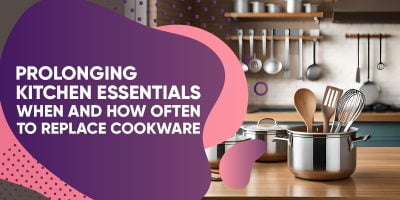How often the kitchen cabinets should be replaced? After constant use, kitchen cabinets exhibit indications of wear and tear. Depending on the material, they are not designed to endure forever and may need a complete overhaul every 10 to 15 years.
Cabinets, like any other static piece of furniture in your house, have both a beneficial and aesthetic purpose.
It can be challenging to pick a good brand and design if you decide between replacing or refacing your cabinets.
Restoring your existing cabinets may appear to be a smart idea at the time. But, this undertaking is more complex than it initially appears, and it may be simpler to start from scratch.
In this context, we will discuss a few pointers to help you determine whether or not it is time to replace your kitchen cabinets so that you can make the right choice.
Table of contents
Estimated reading time: 6 minutes
How Long Do Kitchen Cabinets Generally Last?
The perception that kitchen cabinet installation is a long-term process may be incorrect. There is a direct correlation between the quality of the wood cabinets you buy and the length of time they will remain in good condition.
In general, cabinets of exceptional quality can survive for as long as fifty years. This seems like an extremely lengthy amount of time, yet in reality, cabinets are one of the components in your kitchen that lasts the longest out of everything you have there.
If you are considering whether or not it is time to replace your cabinets, you should consider whether there are any other kitchen equipment or features that will likely need to be replaced soon.
The following are the kitchen appliances that, on average, have the most extended lifespans, according to a survey conducted by the National Association of Home Builders:
- Sink: five to ten years.
- Fifteen years on the faucet.
- Nine years for the dishwasher
- Cabinets have a 50-year warranty.
- Gasoline has a range of 15 years.
- The age of the refrigerator is thirteen.
- Stone from the earth will last a lifetime as a countertop material.
- Marble countertops will last for around 20 years.
When choosing new cabinets for your kitchen, it is crucial to remember whether you will soon need to replace other kitchen components. This is important to remember for reasons of aesthetics and finances.
Note:
Because your cabinets will last so long, choose ones that match your current and future appliances. Traditional cabinets are the finest long-term investments since they promise success.
If you buy a used house, you may not know how old the cabinets are. Age isn’t everything. Age alone isn’t a good measure of cabinet quality.
Your kitchen cabinets may lose their shine sooner, regardless of their quality. Some cabinets aren’t as robust as others. Therefore not all will last 50 years. Others won’t fit. What criteria besides age should be considered while replacing cabinets? Track the next section to get the appropriate answer!

Common Signs That Your Cabinets Need Replacement
Kitchen cabinets typically need to be updated before other cabinetry in your home is built simultaneously because of their constant use. Consider replacing rather than refacing your cabinets if one or more of the following conditions are met.
Damage caused by water
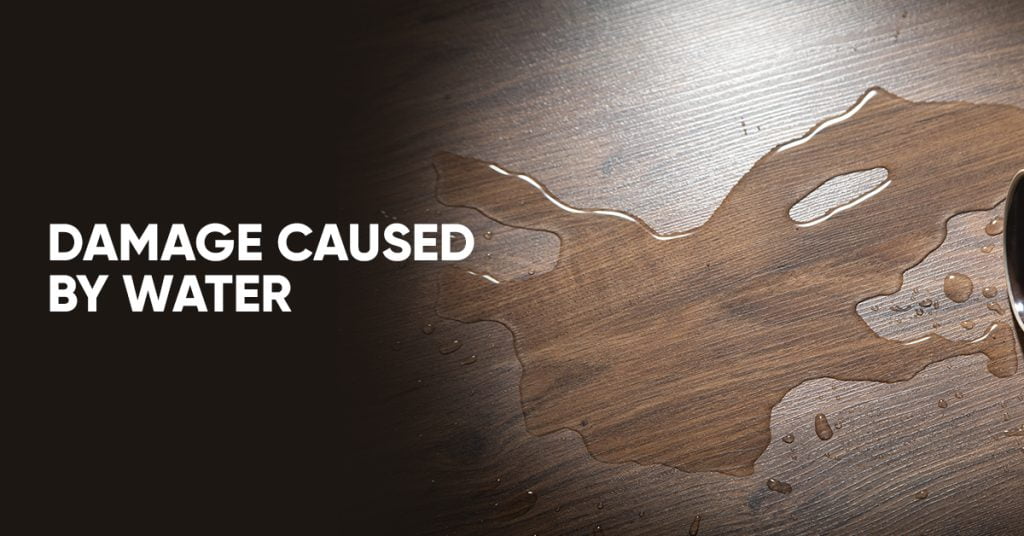
Check for swollen or discolored areas in your cabinetry. Most kitchen cabinets are hardwood, which makes water damage more likely. Using wood in your kitchen is terrible since it is susceptible to water damage, especially if you leak someplace.
Water damage is more significant if the following occurs:
- Wood has begun to rot.
- Inside or outdoors, cabinets are bursting at the seams.
- The outsides are peeling away from the core.
- The hue of the wood has begun to shift.
- Mold has started to grow on the cabinets.
- The doors and drawers of the cabinets don’t work correctly.
Finding the source of water damage is the first step. Then, dry the cabinet. Afterward, if possible, repairs can be made.
Some pieces will need to be replaced, and stains will need to be bleached away; this will take time and money. Make certain that your cabinets can be repaired before beginning the project.
The overall function of the application is frustrating
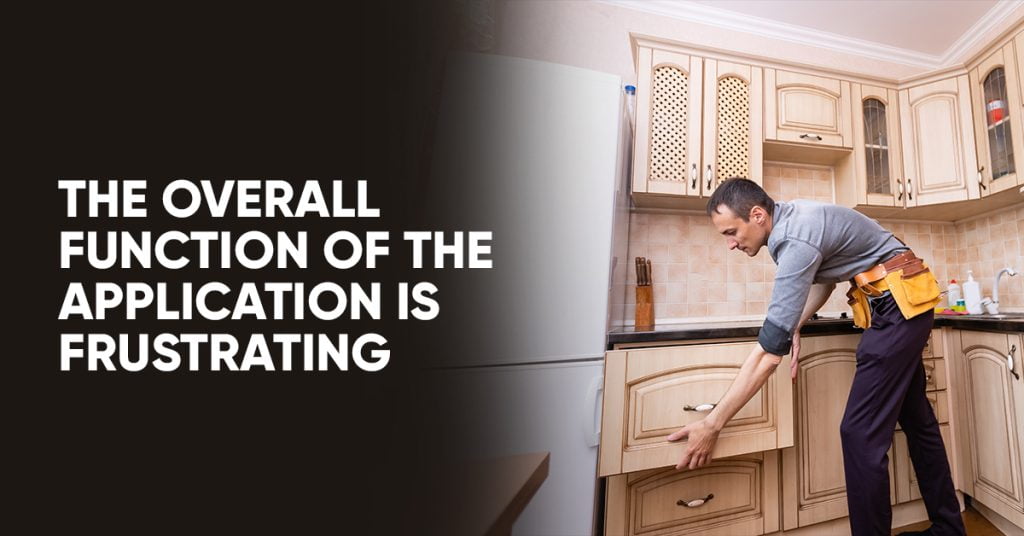
Another clue that you may want to replace rather than repair your kitchen cabinets is if they don’t operate well for you.
In the end, it doesn’t matter how nice your refinished cabinets seem if they still don’t work properly.
“Soft” Cabinets
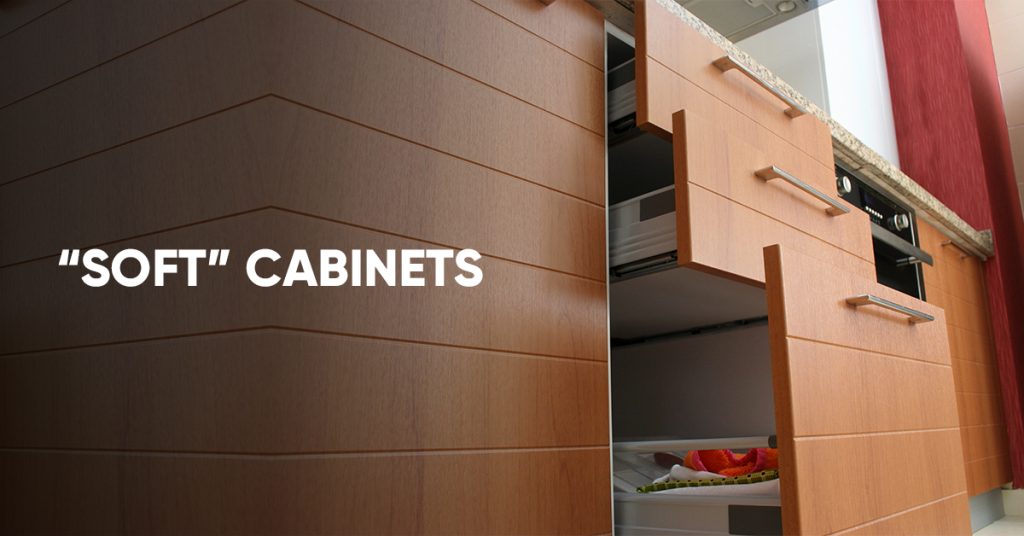
If so, it’s time to replace them. Do your cabinet’s walls seem pliable when you touch them? If this is the case, your cabinets are likely severely damaged and will eventually come apart.
If your cabinet’s sides are in bad shape, there’s little use in spending money on cosmetic upgrades.
Moldy Cabinets
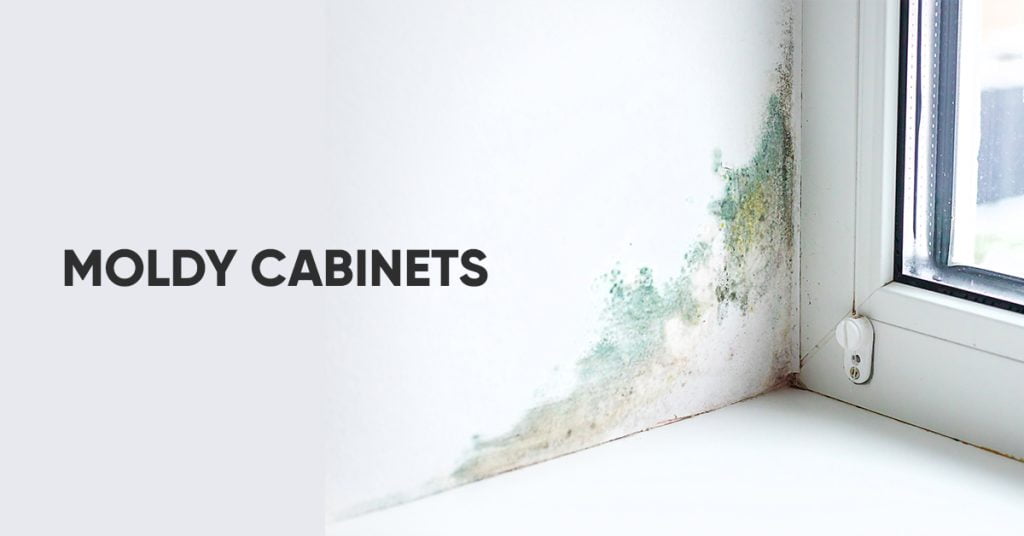
Many surfaces, including your kitchen cabinetry, can become infested with mold at any time.
Mold is not only a threat to the structural integrity of your cabinets, but it may also pose a health risk to you and your family. To avoid the problem from recurring, locate the source of any water leak as soon as you see any signs of mold growth.
Poor cabinet box condition
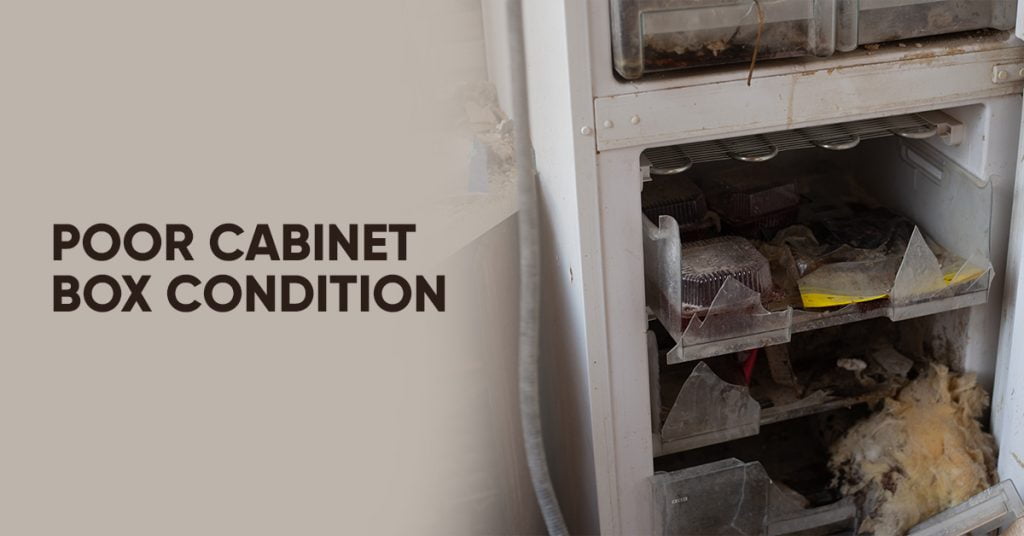
If the cabinet box is aged, you can’t drill holes or connect new hinges.
To avoid spending time and money trying to fix a cabinet that requires a new box of wood, you must replace the complete wardrobe. First, you need to ensure that the wood is strong enough to handle the additional holes and hinges that you’ll be drilling into.
Do You Really Need To Replace Kitchen Cabinets?
Before spending money, time, and effort to repair cabinets, you want to be sure. Old, worn-out cabinets must be replaced. Cabinets sometimes wear out prematurely. Identify why your cabinets are beyond repair, so the situation doesn’t recur.
Even if you buy new cabinets, the problem will return if you don’t fix what caused the old ones to wear out. Look for symptoms of warping or swelling in damp cabinets. A humidifier helps decrease cabinet warping from humidity.

Read More:


